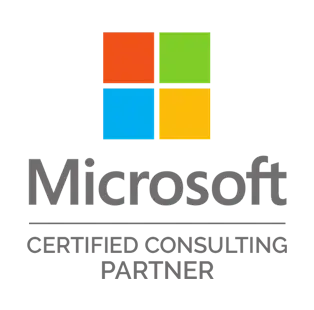
Nowadays, innovations frequently emerge to reshape industries and expand possibilities. Blockchain technology is one example of a ground-breaking advancement. While initially associated with cryptocurrencies such as Bitcoin, blockchain has evolved to have far-reaching applications in various industries, including mobile app development.
Blockchain is a decentralised and distributed ledger technology that allows for secure and transparent transactions without intermediaries. Blockchain provides numerous mobile app development advantages, from improved security and transparency to increased efficiency and trust. Let’s take a closer look at how blockchain works with mobile applications.
Understanding Blockchain Technology
Blockchain is based on a decentralised network of computers, known as nodes, that collectively validate and record transactions in a chronological chain of blocks. Each block contains the previous block’s cryptographic hash, resulting in an immutable ledger that ensures data integrity and transparency.
According to App Developers Dubai, one of the most important features of blockchain is its consensus mechanism, which governs how transactions are validated and added to the ledger. Proof of Work (PoW), Proof of Stake (PoS), and Delegated Proof of Stake (DPoS) are three popular consensus mechanisms, each with its own set of benefits in terms of security, scalability, and energy efficiency.
Applications of Blockchain in Mobile App Development
1. Enhanced Security and Data Privacy
Blockchain’s cryptographic algorithms and decentralised architecture provide strong security mechanisms, making tampering and unauthorised access impervious. Mobile apps that use blockchain can ensure the integrity and confidentiality of sensitive data by encrypting it and storing it across multiple nodes on the network. This distributed ledger system eliminates single points of failure, lowering the risk of data breaches and manipulation. Furthermore, blockchain’s transparency enables users to audit transaction histories securely, increasing trust in the app’s data integrity.
2. Transparent and Immutable Transactions
By recording transactions on a decentralised ledger, blockchain promotes transparency and accountability in mobile app ecosystems. Whether facilitating peer-to-peer payments, tracking supply chain logistics, or verifying digital identities, blockchain allows for immutable records that stakeholders can audit and verify in real time. This transparency builds trust between parties and simplifies processes by eliminating the need for intermediaries or manual reconciliation. Blockchain-powered mobile apps provide a reliable solution for ensuring transaction authenticity and traceability in industries such as finance and healthcare.
3. Decentralised Identity Management
Traditional identity management systems are frequently centralised, which creates security vulnerabilities and raises privacy concerns. Blockchain introduces decentralised identity solutions, allowing users to manage their digital identities securely. Mobile apps can use blockchain-based authentication protocols, such as self-sovereign identity (SSI) or decentralised identifiers (DIDs), to improve user privacy and reduce the risk of identity theft and fraud. Decentralised identity management allows users to securely manage their data and selectively disclose information as needed, reducing reliance on centralised authorities and lowering the risk of data breaches.
4. Tokenisation and Incentive Mechanisms
Blockchain enables the creation and exchange of digital assets known as tokens, representing various values, such as currencies, securities, and utility tokens. Tokenisation can be used in mobile apps to encourage user engagement, make micropayments easier, and enable decentralised governance models within decentralised applications (DApps). Mobile apps can use blockchain tokens to reward users for taking specific actions or contributing resources to the network, resulting in a vibrant ecosystem of incentives and rewards. Tokenisation also allows for fractional ownership of assets and new forms of value exchange, such as loyalty points, digital collectables, and in-app currencies.
5. Smart Contracts and Automation
Smart contracts are self-executing contracts that include predefined terms and automated enforcement mechanisms. Built on blockchain platforms like Ethereum, smart contracts allow mobile apps to automate complex workflows like asset transfers, escrow services, and decentralised exchanges. Smart contracts improve efficiency and lower transaction costs by eliminating intermediaries and minimising manual intervention. Mobile apps can use smart contracts to enable trustless interactions between parties, ensuring that pre-agreed terms carry out transactions without intermediaries or centralised oversight.
Challenges and Considerations
While blockchain presents exciting opportunities for mobile app development, it is critical to identify and address potential challenges to ensure successful implementation. Scalability is a significant challenge for blockchain networks, as they frequently face limitations in processing speed and transaction throughput, especially during peak demand.
Developers must investigate scaling solutions such as layer two protocols, sharding, and sidechains to overcome these constraints and accommodate growing user bases and transaction volumes. Furthermore, regulatory compliance is an important consideration, as the legal landscape of blockchain technology varies by jurisdiction and industry.
The Takeaway
To summarise, blockchain technology has transformative implications for mobile app development, revolutionising how we interact with digital platforms and transact value. Mobile app developers can open up new avenues for innovation and create immersive experiences prioritising user empowerment and trust by leveraging blockchain principles such as decentralisation, security, and transparency.
At Obscorn, we believe in using blockchain to create cutting-edge mobile apps that challenge industry norms and improve user experiences. Whether you want to integrate blockchain solutions into your existing app or start a new blockchain-powered venture, our expert team is here to help you at every step.





